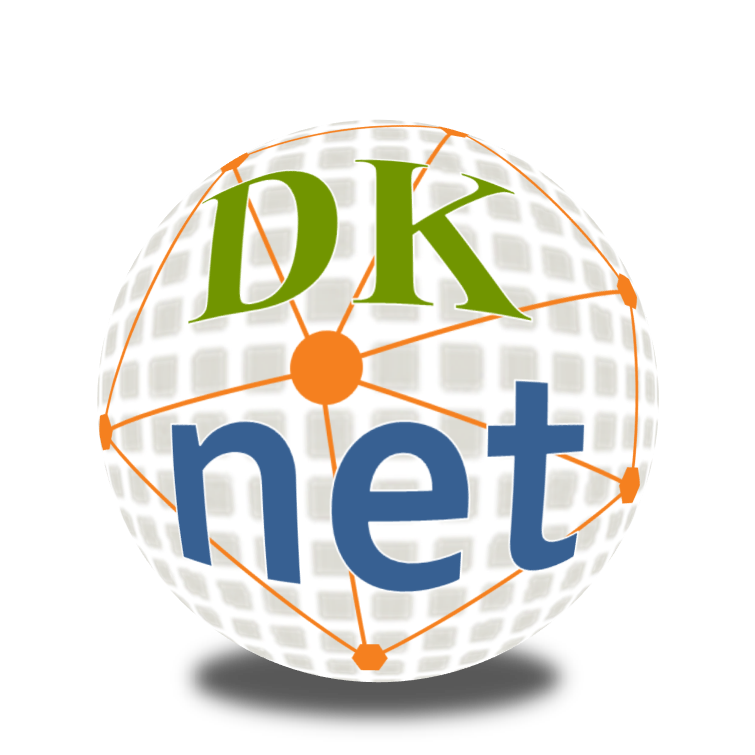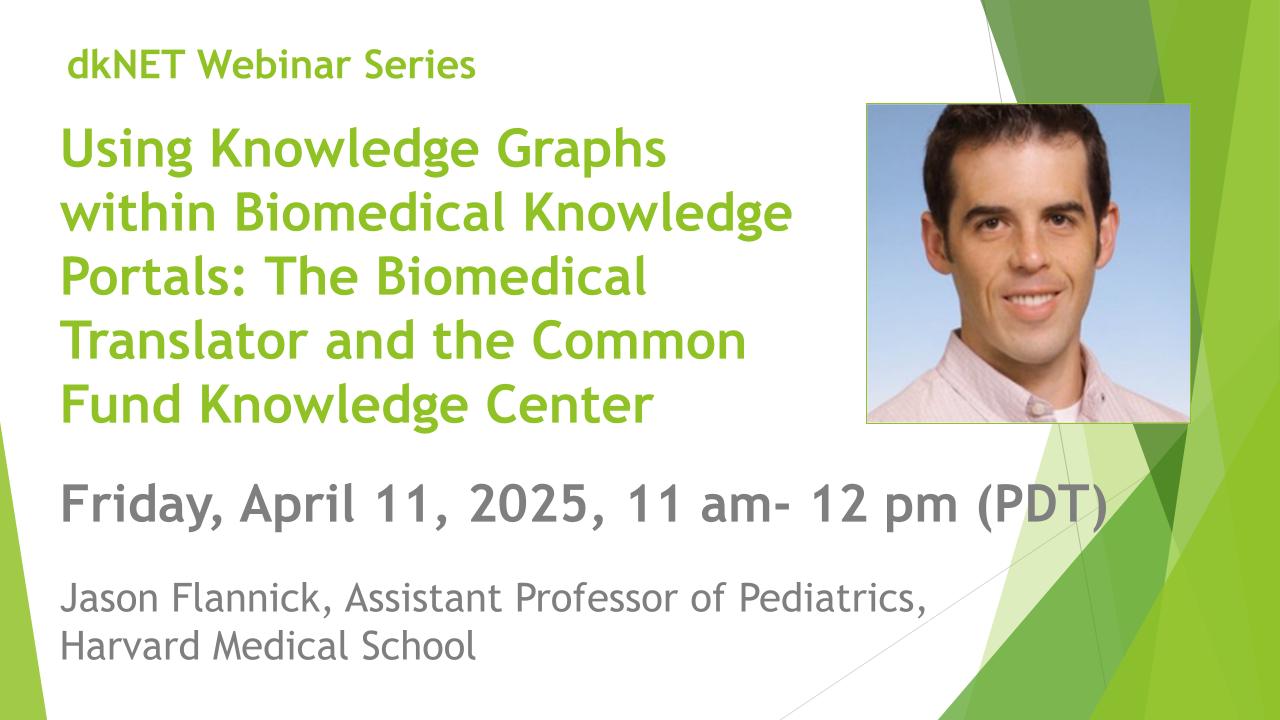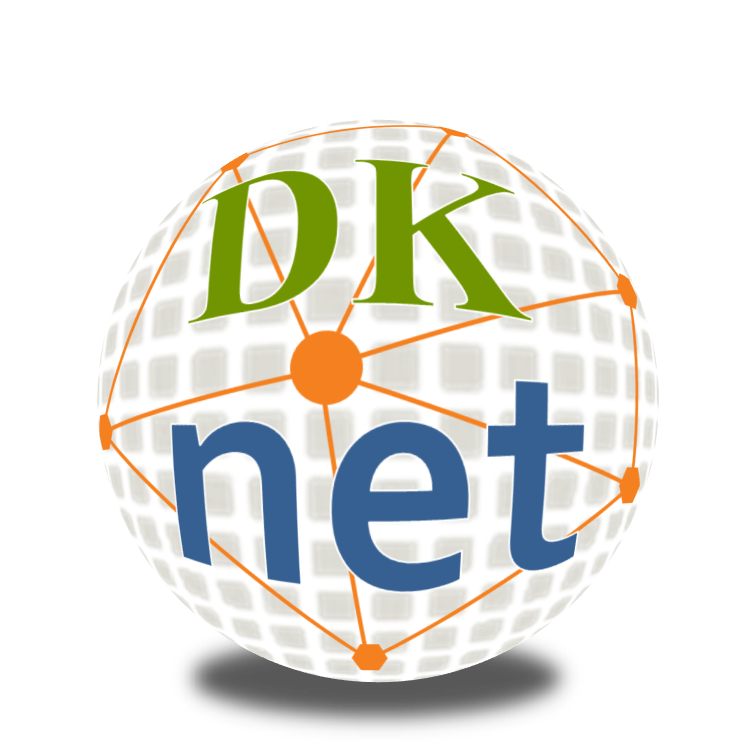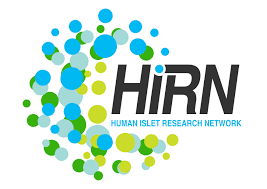Leaving Community
Are you sure you want to leave this community? Leaving the community will revoke any permissions you have been granted in this community.
dkNET community events and announcements in February, 2020
Dear dkNET Community,
dkNET provides updates on activities of interest to the NIDDK-supported community. You could keep up to date on these activities through our Twitter feed @dkNET_info, through our Community Calendar, or through dkNET e-mail list. If you have an event or funding opportunities you'd like to advertise, please contact us info_at_dknet.org.
dkNET News
Funding opportunities:
- dkNET New Investigator Pilot Program in Bioinformatics The pilot program is to provide support for Early Stage and New Investigators seeking to apply computationally-intensive methods to important questions in Diabetes, Endocrinology and Metabolic Diseases (DEMD) research. These awards will provide funding for preliminary studies that can serve as a foundation for the development of future grant applications in DEMD-focused topic areas. Application Due Date: February 14, 2020.
- 2020 dkNET Summer of Data Student Internship To support researchers with the use of on-line resources, the 6-week dkNET Summer of Data Student Internship program provides students an opportunity to utilize the dkNET tools and resources in a research project and to provide feedback on their experience to the dkNET team. Students will learn best practices to enhance rigor and reproducibility and learn the basics of good data management by following the FAIR (Findable, Accessible, Interoperable, Reusable) data principles. dkNET will award a $1,000 scholarship to a limited number of high school, undergraduate or graduate (Masters or PhD) students who are working in a research lab during summer 2020. Awards will be determined by a competitive selection process. Application due date: April 5, 2019.
New publications
The Research Resource Initiative lead Dr. Anita Bandrowski and the dkNET PI Dr. Maryann Martone have released a new preprint "Rigor and Transparency Index, a new metric of quality for assessing biological and medical science methods". You can also check out the article published in Nature News "Software searches out reproducibility issues in scientific papers"and the article publiched in Retraction Watch "Has reproducibility improved? Introducing the Transparency and Rigor Index".
New research tools added:
- GeneLab (RRID:SCR_017658) is an omics database for spaceflight experiments. It is an interactive and open access resource where scientists can upload, download, store, search, share, transfer, and analyze omics data from spaceflight and corresponding analogue experiments, and it enables exploration of molecular network responses of terrestrial biology to space environment. It contains curated omics data, metadata and radiation dosimetry for model organisms. It supports standard guidelines for submission of datasets, MIAME for microarray, ENCODE Consortium Guidelines for RNA-seq and MIAPE Guidelines for proteomics.
- TCGAbiolinks (RRID:SCR_017683) is a software R Bioconductor package for integrative analysis with TCGA data. Users can access National Cancer Institute Genomic Data Commons thorough its GDC Application Programming Interface to search, download and prepare relevant data for analysis in R.
- Mousebytes (RRID:SCR_017904) is an open access database for mouse cognition, imaging and genomics data integration. It contains open-access high-throughput pipeline and database for rodent touchscreen-based cognitive assessment.
- Primate Cell Type Database (RRID:SCR_017963) is a database of intracellular recordings of non-human primates (NHP) cells sampled from the lateral prefrontal cortex. 249 patch clamp recordings for 2 protocols: 1 second current pulse and 3 millisecond pulse. It contains morphology obtained by biocytin injections and confocal imaging at 63x magnification.
- Cistrome (RRID:SCR_017663) is an integrative platform for transcriptional regulation studies, and it is a data analysis platform based on the Galaxy open source framework. Besides standard Galaxy functions, Cistrome has ChIP-chip- and ChIP-seq-specific tools in three major categories, from preliminary peak calling and correlation analyses to downstream genome feature association, gene expression analyses, and motif discovery. It is used to conduct data integration to mine hidden biological insights from publicly available high throughput data.
dkNET upcoming webinar:
- Save the date! Our February's webinars will be on February 14 and 28, 2020 at 11 am pacific time. Come learn resources, services, and tools offered by Mutant Mouse Resource & Research Centers (MMRRC Repository) and AMP Type 2 Diabetes Knowledge Portal (T2D Knowledge Portal)!
Events in February, 2020
Feb. 11-12, 2020
NIH Workshop: Role of Generalist Repositories to Enhance Data Discoverability and Reuse
The Office of Data Science Strategy at the National Institutes of Health and the National Library of Medicine are hosting a workshop(link is external) on the Role of Generalist Repositories to Enhance Data Discoverability and Reuse on Feb. 11-12. The workshop will be held at the Lister Hill Auditorium on the NIH main campus in Bethesda, Md. The primary goals of the workshop are to: (1) Hear from generalist repositories about how they see themselves in the larger biomedical data repository landscape. (2) Understand from institutional data repositories how they are creating suites of solutions for their researchers and how they see generalist repositories fitting in this landscape. (3) Consider desired characteristics of data repositories and how they relate to institutional expectations of data storage/preservation solutions. (4) Explore adoption of common infrastructure, standards and federated search solutions to enable greater discoverability of NIH research data across federated data repositories. (5) Address the role of data curators in ensuring that data and metadata are sufficiently well curated to enhance discovery and enable reuse. Registration deadline: February 4, 2020.
Location: Bethesda, MD, USA
More information: https://datascience.nih.gov/news/nih-to-host-workshop-on-role-of-generalist-repositories-to-enhance-data-discoverability-and-reuse
Feb. 13-15, 2020
2020 Rachmiel Levine-Arthur Riggs Diabetes Research Symposium
2020 Rachmiel Levine-Arthur Riggs Diabetes Research Symposium will be held in Universal City, CA from February 13 To 15, 2020.
More information: https://www.cityofhope.org/research/levine-symposium/levine-symposium-abstracts-and-poster-session
Feb. 14, 2020
dkNET Webinar: Mutant Mouse Resource & Research Centers (MMRRC Repository)
More information: https://dknet.org/about/blog/2016
Feb. 23-27, 2020
Keystone Symposia: Obesity and NAFLD: Mechanisms and Therapeutics (B3)
Location: Banff, AB, Canada
More information: http://www.keystonesymposia.org/index.cfm?e=web.meeting.program&\;meetingid=1698
Feb. 28, 2020
dkNET Webinar: AMP Type 2 Diabetes Knowledge Portal (T2D Knowledge Portal)
Dial-in information: https://uchealth.zoom.us/meeting/register/tJEsdemsqTMrhvUzfBTV8GL-DJy5AXvvKw
Funding opportunities information and deadlines in February, 2020
Feb. 02, 2020
NIH Funding Opportunity Letter of Intent Due Date: Tissue Mapping Centers for the Human BioMolecular Atlas Program (U54 Clinical Trial Not Allowed)
More information: https://grants.nih.gov/grants/guide/rfa-files/RFA-RM-20-002.html
Feb. 02, 2020
NIH Funding Opportunity Letter of Intent Due Date: Transformative Technology Development for the Human BioMolecular Atlas Program (UG3/UH3 Clinical Trial Not Allowed)
More information: https://grants.nih.gov/grants/guide/rfa-files/RFA-RM-20-001.html
Feb. 02, 2020
NIH Funding Opportunity Letter of Intent Due Date: 4DN Organization and Function in Human Health and Disease (U01 Clinical Trial Not Allowed)
More information: https://grants.nih.gov/grants/guide/rfa-files/RFA-RM-20-005.html
Feb. 02, 2020
NIH Funding Opportunity Letter of Intent Due Date: New Investigator Projects on 4DN Organization and Function in Human Health and Disease (U01 Clinical Trial Not Allowed)
To support projects from scientists who are in the early stages of establishing an independent research career that apply new or existing tools to monitor and/or manipulate the 4D nucleome (4DN) in the context of human health and disease. Any human disease or biological process relevant to NIH’s mission may be proposed including environmental exposures (e.g. addictive substances, toxins, psychosocial stress), or studies across development or lifespan. Other relevant time frames may include but are not limited to: circadian rhythms, fasting and feeding cycles, reproductive cycles, and sleep/wake cycles.
More information: https://grants.nih.gov/grants/guide/rfa-files/RFA-RM-20-006.html
Feb. 10, 2020
National Kidney Foundation Funding Opportunity Application Deadline: 2020 Young Investigator Research Grant Program
The National Kidney Foundation recognizes the importance of the accomplishments of individuals who are early in their investigative careers in the advancement of our knowledge about the treatment and prevention of kidney disease. To raise awareness and create interest in the challenge of developing better treatments for kidney disease and its complications, the NKF has established a Young Investigator grant program to support clinical research studies addressing important issues for patients with kidney disease. Promising young scientists are encouraged to submit proposals for investigating clinical research questions in nephrology, or closely related fields. Projects must be patient-oriented. Elements of patient- oriented research activities may include but are not limited to development of new technologies, mechanisms of human disease, educational or therapeutic interventions, epidemiological studies, health policy studies, and clinical trials. Individuals who have completed fellowship training in an ACGME- accredited training program and who hold junior faculty positions (Instructor or Assistant Professor) at university-affiliated medical centers in the United States are eligible to apply.
More information: https://www.kidney.org/sites/default/files/2020%20YI%20Grant%20Eligibility%20%26%20Instructions.pdf
Feb. 13, 2020
NIDDK Funding Opportunity Letter of Intent Due Date: Type 1 Diabetes in Acute Pancreatitis Consortium - Clinical Centers (T1DAPC-CCs) (U01 Clinical Trial Optional)
This Funding Opportunity Announcement (FOA) invites U01 applications for the establishment of a clinical consortium, composed of one Data Coordinating Center (DCC) and up to 10 Clinical Centers (CC), to conduct studies on diabetes mellitus, with an emphasis on Type 1 diabetes (T1D), that occurs after or as a consequence of one or more episodes of acute pancreatitis. The Consortium will form multi-disciplinary teams composed of members from the CCs and DCC to undertake a prospective longitudinal observational study of the occurrence of diabetes that occurs during an acute pancreatitis episode or subsequently, with an emphasis on type 1 diabetes (T1D). The study will be designed to gain insight into the incidence, clinical evolution, etiology, type and pathophysiology of the T1D and other forms of diabetes that occurs during or after one or more episodes of acute pancreatitis. The teams will also undertake studies on the identification of immune and genetic risk factors and biomarkers which predict the development of T1D in a racially, ethnically, and geographically diverse population of subjects who have impaired glucose tolerance or diabetes mellitus after one or more episodes of acute pancreatitis due to various identifiable etiologies. Applications for the Data Coordinating Center (DCC) will be submitted in response to a separate FOA: RFA-DK-19-023: Type 1 Diabetes in Acute Pancreatitis Consortium Data Coordinating Center (T1DAPC-DCC) (U01 Clinical Trial Optional). To achieve the goal of a comprehensive characterization of diabetes with an emphasis on T1D that results or occurs after acute pancreatitis, each CC should include researchers and clinicians with multi-disciplinary expertise. CCs will be expected to share results freely within Consortium and to develop trans-consortium collaborative projects that make use of the combined expertise and technological capabilities present in all of the CCs. In addition, a major collaborative effort within the Consortium will be the establishment of an annotated repository of bio-specimens (e.g., blood, saliva, urine, pancreatic and duodenal juice, stools and when feasible pancreatic tissue) to allow for the identification and validation of biomarkers for risk stratification, early detection, and to inform the development of future treatment strategies to prevent or reverse T1D after acute pancreatitis.
More information: https://grants.nih.gov/grants/guide/rfa-files/RFA-DK-19-022.html
Feb. 13, 2020
NIDDK Funding Opportunity Letter of Intent Due Date: Type 1 Diabetes in Acute Pancreatitis Consortium - Data Coordinating Center (T1DAPC-DCC) (U01 Clinical Trial Optional)
This Funding Opportunity Announcement (FOA) invites U01 applications for the establishment of a clinical consortium, the Type 1 Diabetes in Acute Pancreatitis Consortium (T1DAPC), composed of one Data Coordinating Center (DCC) and up to 10 Clinical Centers (CC), to conduct studies on Type 1 diabetes mellitus (T1D) that occurs after or as a consequence of one or more episodes of acute pancreatitis. Applications for the Clinical Centers (CC) are submitted in response to a separate FOA: RFA-DK-19-022 : Type 1 Diabetes in Acute Pancreatitis Consortium Clinical Centers (T1DAPC-CC) (U01 Clinical Trial Optional). The applicant for the Data Coordinating Center (DCC) must have experience serving as the DCC for studies on complex, clinical conditions, like the occurrence of diabetes mellitus (DM) after or as a consequence of one or more episodes of acute pancreatitis. The Consortium will form multi-disciplinary teams composed of members from the CCs and the DCC to undertake a prospective longitudinal observational study of the occurrence of diabetes that occurs during an acute pancreatitis episode or subsequently, with an emphasis on type 1 diabetes (T1D). The study will be designed to gain insight into the incidence, clinical evolution, etiology, type and pathophysiology of the T1D and other forms of diabetes after acute pancreatitis. The Consortia will also undertake studies on the identification of immune and genetic risk factors and biomarkers which predict the development of T1D in a racially, ethnically, and geographically diverse population of subjects who have recovered from one or more episodes of acute pancreatitis due to various identifiable etiologies. The DCC will provide overall project coordination, administration, quality control, data management and biostatistical support.
More information: https://grants.nih.gov/grants/guide/rfa-files/RFA-DK-19-023.html
Feb. 14, 2020
dkNET Funding Opportunity Application Due Date: New Investigator Pilot Program in Bioinformatics
More information: https://dknet.org/about/new-investigator-pilot
Feb. 17, 2020
NIH Funding Opportunity Letter of Intent Due Date: 4DN Centers for Data Integration\, Modeling and Visualization (UM1 Clinical Trial Not Allowed)
More information: https://grants.nih.gov/grants/guide/rfa-files/RFA-RM-20-004.html
Feb. 17, 2020
NIH Funding Opportunity Letter of Intent Due Date: Real Time Chromatin Dynamics and Function (U01 Clinical Trial Not Allowed)
More information: https://grants.nih.gov/grants/guide/rfa-files/RFA-RM-20-003.html
Feb. 19, 2020
NIDDK Funding Opportunity Application Due Date: Limited Competition for the Closeout of the SEARCH for Diabetes in Youth Cohort Study (R01 Clinical Trial Not Allowed)
More information: https://grants.nih.gov/grants/guide/rfa-files/RFA-DK-19-507.html
Feb. 25, 2020
NIDDK Funding Opportunity Letter of Intent Due Date: New Investigator Gateway Awards for Collaborative T1D Research (R03 Clinical Trial Not Allowed)
More information: https://grants.nih.gov/grants/guide/rfa-files/RFA-DK-19-026.html
Feb. 26, 2020
NIDDK Funding Opportunity Letter of Intent Due Date: Mechanisms Underlying the Contribution of Type 1 Diabetes Disease-associated Variants (R01 Clinical Trial Not Allowed)
More information: https://grants.nih.gov/grants/guide/rfa-files/RFA-DK-19-020.html
Feb. 26, 2020
NIDDK Funding Opportunity Letter of Intent Due Date: Treating Diabetes Distress to Improve Glycemic Outcomes in Type 1 Diabetes (R01 Clinical Trial Required)
More information: https://grants.nih.gov/grants/guide/rfa-files/RFA-DK-19-021.html





